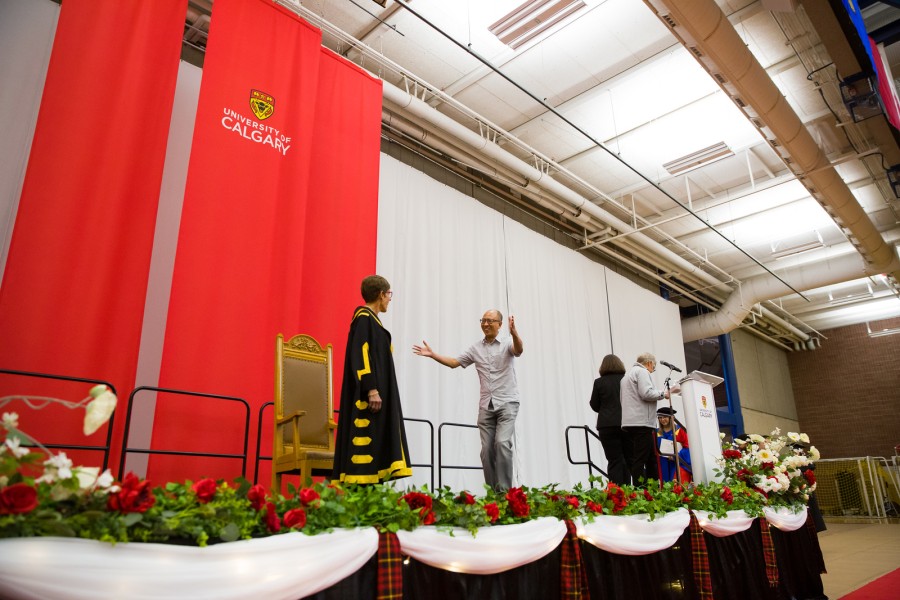
Reaching a Unique Generation
Jessica Lewis doesn’t know what it’s like to attend graduate school outside of a global pandemic. She began her Master of Business Administration degree at Emory University’s Goizueta Business School in fall 2020 and graduated in 2022.
“There was definitely an impact felt across my class,” says Lewis. “We didn’t get to experience the bonding activities that you’re supposed to do prior to even stepping foot on campus, and because of that we had to work harder to then form connections with our classmates.”
For alumni relations teams, engaging young alumni is a perennial challenge, calling for unique solutions to capture an ever-changing cohort’s attention. But that’s particularly relevant now, with the most recent graduating classes having experienced pandemic interruptions to their campus experiences, wellness, and long-term financial and career positions.
“Our [typical] nostalgia marketing is less effective on this graduating cohort because they didn’t have the same campus experience,” says Nina Gardiner, Alumni Engagement Coordinator at the University of Queensland in Brisbane, Australia. “They completed most of their studies online so they missed the opportunity to hang around campus and have coffee and build those campus connections; it was actually a very stressful time of their lives.”

"CELEBRATE SOMETHING!": As part of its 2022 fall Dinos KICKOFF, University of Calgary invited its 2020 and 2021 graduates back to campus to take part in traditions they missed because of the pandemic, like walking at graduation.
Many students missed out on important traditions, says Skylar Beaver, Assistant Director of Advancement at The Lawrenceville School, New Jersey, U.S.
“We have to be completely mindful of the fact that their experiences were different and find ways to remind them they might be even more engaged in their alumni years than those when they were on campus,” says Beaver. “If we don’t, we might lose them forever. We talk often about some of the older decades where there’s lost class years or a lost decade—we can’t afford to let that happen with these recent grads.”
Research indicates that engagement in the first 10 years post-graduation, when alumni are more likely to participate in experiential and communications activities rather than philanthropically, are crucial to laying the groundwork for giving activity that typically increases 11 years post-graduation, according to CASE Insights on Alumni Engagement.
But Beaver remains optimistic, encouraged by data that shows millennials and Gen Z are philanthropic generations.
According to CCS Fundraising, both Gen Z and millennials are impact-oriented in their giving. Gen Z gives spontaneously when inspired by life events or stories and are activists who look to become part of something bigger than themselves, and therefore put a greater focus on public recognition. Millennials look to give to organizations that reflect their values and typically conduct research before making a gift. In 2018, the two generations were estimated to give a combined more than $23 billion per year.
Now as these generations enter a reopened world, alumni teams look to build connections that weren’t forged on campus. They are adjusting previously established strategies to address this cohort’s unique needs and taking what worked during the pandemic, and adapting that to attract graduates in a changed world.

WELCOME BACK: "We’ve been waiting for a moment like this where we could celebrate the accomplishments of our new grads," says Colleen Bangs, Senior Director of Alumni Engagement at UCalgary. "Not on a Zoom call. Not from their bedroom—they deserve a celebration in-person." These activities included a graduation walk, photos with mascot Rex, a tailgate party and barbeque alongside the KICKOFF football game.
Celebrating Graduates, Setting a Strategy

Because many 2020 and 2021 graduates missed graduation and other key engagement activities, institutions around the globe planned new celebrations and touch points in 2022 and 2023.
The University of Calgary in Canada won a gold Circle of Excellence Award for its Celebrate Something! event that invited 2020 and 2021 graduates back to campus to celebrate accomplishments in-person that had previously only been acknowledged over Zoom. This included a graduation walk and a tailgate party and barbeque.

REGAL DESIGN: Queen's University's The Notebook won a silver Circle of Excellence Award. Volunteer judges say, "Design was beautiful; it felt regal. This is a keepsake one could pass down to their kids."
Queen’s University, Canada, also connected with pandemic-era graduates through a unique graduation gift. The Notebook was a sentimental keepsake that acknowledged their pandemic experience and spoke to building connection through the university’s global strategic vision.
Emory’s Goizueta Business School organized its 2022 new alumni welcome event to include 2020 and 2021 graduates. This provided a space to formally celebrate and welcome them to the alumni community, says Tifaney Millwood, former Assistant Director of Alumni Engagement at Goizueta.
The excitement Millwood saw from recent alumni at that event inspired the creation of a Graduates of the Last Decade program in 2022. Lewis, who served as Vice President of Alumni Relations in student government prior to graduation, now chairs GOLD’s steering committee.
The committee, which includes Lewis and six other alumni across Goizueta’s various business programs, including both under- and post-grad, are working to plan governance and engagement strategy to eventually form a GOLD council in the upcoming year. They look to create new signature GOLD events and leverage previously existing events to bridge the gap to other alumni.

A GOLD COLLABORATION: Goizueta alumna Jessica Lewis (center) and former Assistant Director of Alumni Engagement Tifaney Millwood (right) worked together to strategically plan the future of the GOLD program, which eventually led to the creation of its current steering committee chaired by Lewis.
“Seeing [the committee] work by alumni for alumni … there’s something magical in peer-to-peer interaction. I’m happy to have alums who want to be proponents of what we’re doing and spread the word on our behalf,” says Millwood, who worked with the committee on behalf of Goizueta staff.
The first official GOLD events began in February 2023, with a night out hosted at an alumnus-owned brewery. A challenge is creating programming that attracts all graduates under the GOLD banner, says Lewis. Because of this, the committee looks to develop a wide array of casual touchpoints, like trivia nights and fall-themed activities like pumpkin picking that will appeal to graduates with families.
Currently, the committee communicates with the GOLD cohort through a quarterly digest and a newly created Goizueta alumni Instagram account. It has a following that is growing slowly, but surely, says Millwood, with a total of 378 followers as of October. They created the account in a move to purposely use a platform through which young people connect.
“[When] I see [events being advertised] on my Insta Stories—that’s when I’m screenshotting and forwarding to my friends,” says Lewis. “This is how the world is communicating now and is step one to [generating engagement].”
Along with promoting events, the account also posts fun social engagement like quick interviews with students and introductions to the alumni office, and teaches about giving, including through a Giving MythBusters reel that achieved more than 2,000 views in the first 24 hours after it was posted.

PITCHING FOR ALUMNI ENGAGEMENT: While serving as Vice President of Alumni Relations in student government prior to graduation, Jessica Lewis started the annual Goizueta student and alumni Braves game night. In September, almost 300 students and alumni, of which a significant portion are GOLD, filled a rooftop at the baseball team's stadium for the third annual event. "It's a great social engagement opportunity," says Lewis.
Building Ties, In-Person and Online

In an increasingly globalized world, another barrier to reaching young alumni is location. As graduates move away from their alma mater and international students return home, alumni teams must find ways to remain connected to an already disconnected group.
“The easiest touch point for us to have as alumni is the local community and network [around campus]. I stayed local [post-graduation] so for me, Goizueta’s top of mind. But for someone who isn’t here, it’s 'out of sight, out of mind,’” says Lewis.
Alumni relations professionals say they’ve seen young alumni, fatigued with digital connection, craving in-person connection. The University of Iowa has connected with graduates through “Welcome to the City,” social and networking events which take place in metro areas with large groups of Iowa graduates, such as Chicago, Kansas City, and Los Angeles. Alumni are invited out on a weekday evening to an event cohosted by Iowa and a local volunteer club, introducing new graduates to volunteer opportunities in their cities while allowing them to build relationships with their broader Iowa community. This program has been particularly successful with the latest three graduating classes, says Lynn Barker, Associate Director of Alumni Engagement at Iowa.
The Lawrenceville School (a grades 9-12 school whose graduates move on for postsecondary education) uses a similar concept called Harkness Dinners, named after the Harkness table that students learn around to foster collaborative thinking and discussion in the school’s nontraditional classrooms. This concept has been taken on the road to regather alumni in different cities across the country.
Beaver says, “We think our young alums want to go to happy hours, but they’re probably going to plenty [already]. And so [the concept of gathering] eight people around a table and sharing with them how they can be involved and what their gift can do—young alums are looking for content-rich events to be engaged with each other and the institution.”
This style of engagement allows Lawrenceville’s college-age young alumni cohort in particular to share their opinions and have their voices heard through college-age dinners that are hosted by a Lawrenceville alumnus and graduate of a secondary education institution where a large contingent of Lawrenceville alumni currently attend.
"With young alumni, the peer-to-peer approach, whether that’s soliciting your peers or encouraging them to join you at an event, it’s effective,” says Beaver.

MAKING CHANGE: University of Queensland created the online platform, UQ ChangeMakers, to connect international alumni, particularly pandemic-era alumni who couldn't make connections on campus. The central platform hosts a directory of over 11,000 members, who can direct message each other, join groups, and access career resources, among other features.
The challenge of connecting with alumni far from campus is particularly relevant for international alumni, and with the pandemic reinforcing the need for a peer-to-peer platform, UQ created ChangeMakers—a platform that is for alumni, by alumni. It specifically bridges the gap for pandemic-era graduates who can now form connections they didn’t make on campus, says Emma Dawson, Manager, International Alumni Engagement.
Launched in July 2022, it includes a directory of more than 11,000 members that is the top feature clicked on the platform each month.
“The direct messages sent on the platform are significantly high,” says Dawson. “Alumni are initiating conversations; they’re reaching out and arranging to catch up or asking questions of each other.”
The platform also allows members to create and join groups based on geographical location, special interest, industry, and faculty/school. Dawson says alumni use these groups to connect, coordinate events and meet-ups, and share research. There’s also a resources feature tailored to provide students who graduated during the pandemic access to valuable career resources they may have missed during their online studies, explains Dawson.
Experiences with Purpose

As the world has reopened over the last year, the team at UQ has transitioned away from predominantly sit down, lecture-style events. With competing priorities, these events are the first thing alumni remove from their calendars, says Gardiner.
Instead, the team has pivoted to providing experiences for its young alumni (graduates under the age of 35). This includes a front row seat to Riverfire, a festival and fireworks display that takes place along the Brisbane River, and an alumni weekend on Heron Island, which is accessible via a two-hour ferry trip through the Great Barrier Reef. These offerings are open to all alumni, but also draw young alumni, despite higher ticket prices.
“If there’s an experience, that’s what our young alumni will invest in,” says Gardiner.
In 2021, UQ created an event experience tailored to their young alumni cohort called Party with a Purpose. It’s a night that aims to recreate the social experience of the balls that UQ students attend through the university’s clubs and societies throughout the academic year. A portion of the ticket price is donated to a UQ cause to introduce alumni to the concept of giving back to their alma mater.
“[The event] definitely attracts a different audience compared to our education-based content, which is great because it’s reengaged alumni with us,” says Gardiner.
Other elements of the party, like a raffle with prizes donated by alumni-owned businesses and an alumni band are ways the UQ team accomplishes their goal for the event to be by alumni, for alumni. The event also addressed a barrier to pandemic-era graduate attendance by being open to those outside the UQ alumni base.
“The feedback we’re hearing from our alums is, ‘Because I couldn’t go to campus, I didn’t make the friends I would have, so who would I come to an event with’ … getting [this cohort] to come to an event is a lot harder because they don’t have that buddy they can go with,” says Gardiner.
Therefore, event marketing specifically says: “Bring your friends (UQ alumni or not)” to get over this hurdle, explains Gardiner.

DRESS UP AND DANCE: UQ's 2021 Party with a Purpose attracted young alumni by recreating an experience like the balls attended throughout an academic year as a student. The event featured an alumni band and a raffle with prizes donated by alumni-owned businesses, to be by alumni, for alumni.
Connecting for Philanthropy

Alumni relations teams are introducing philanthropy to this generation of young alumni by strategically positioning giving as a part of their experiences within their alumni community.
UQ introduces giving at graduation through the unifying memento of commemorative class T-shirts with a portion of the purchase price being donated to a UQ cause.
“Introducing giving slowly and subtly in a fun way places the university as a destination for giving, which isn’t front of mind for most students,” says Gardiner.

GIVING IS FUN: A portion of the purchase price of a University of Queensland commemorative class T-shirt is donated to a UQ cause, which places giving front-of-mind for recent graduates, says Nina Gardiner, Alumni Engagement Coordinator.
Similarly, Emory Goizueta’s GOLD program introduces philanthropy strategically. When GOLD kicked off at Goizueta’s 2022 homecoming with a special event that was branded through gold champagne flutes and special swag, it emphasized connection and engagement—not necessarily giving.
“That’s probably the event that put GOLD on a map for young alumni and let them know, ‘Okay, there’s a focus on us, there are ways for us to get engaged, and they’re not asking us for a whole bunch of money on the spot.’ They feel safe coming to that event because we know they may or may not have the capacity to give,” says Millwood.
Still, Millwood (who also managed Emory’s day-of-giving programming for Goizueta) saw a 10% increase in the number of GOLD segment donations from 2022 to 2023, following the creation of the GOLD program.
“It's hard to say [the GOLD program] did this, but it's a part of it,” says Millwood. “We're not focused on dollar amount but donor count, and we’ve been pushing that into communications, saying: ‘Start to build your legacy, even if it’s $5.’ Our main purpose [with GOLD] is bridging the gap from engagement to giving, but also no engagement to engagement. Being strategic about giving education [accomplishes that].”
A Lifelong Relationship
It will take years for advancement staff to see the full impact of the pandemic on alumni who experienced it on and off campus and graduated into a less-than-normal world. But in the meantime, alumni teams are learning about this generation of young alumni.
Beaver says, “This generation cares a lot more about diversity, equity, and inclusion initiatives … they’re going to continue to challenge us to make sure that we are being inclusive in our programming and volunteer opportunities.”
Pandemic-era graduates are poised to be vocal representatives for their institutions and demand a transparency and real-world impact that will attract future students and support institutional missions for the betterment of society.
“Young alumni and recent graduates—they’re future philanthropists, advocates, and volunteers. They’re the next generation that will take the university to the next level. It’s incredibly important to start that relationship building yesterday,” says Barker.
Millwood echoes this sentiment: “Alumni were always either young or new at some point. So even though [young alumni] may not have major gift capacity now, if you build that relationship when they are young, they’ll want to give because of that relationship. It’s a win-win. Seasoned alums started somewhere, so you have to think about the long game. Young alumni are important.”

YOUNG ALUMNI (AND FRIENDS): "Getting [pandemic-era graduates] to come to an event is a lot harder because they don’t have that buddy they can go with," says Nina Gardiner. Because of this, UQ's Party with a Purpose was specific in its event marketing to say "Bring your friends (UQ alumni or not)."
About the author(s)
Hannah Ratzer is Editorial Specialist at CASE.
Tags
Article appears in:

November - December 2023
DIGITAL ONLY ISSUE - How to achieve the "golden record" with master data management. Plus, how to engage pandemic-era graduates, match making alumni mentors and student mentees, and chatting about ChatGPT.









